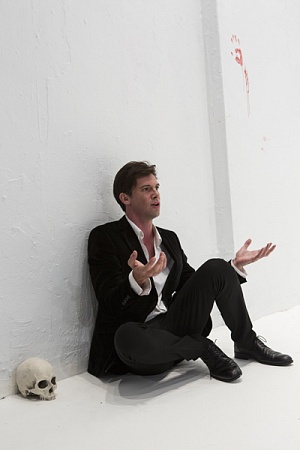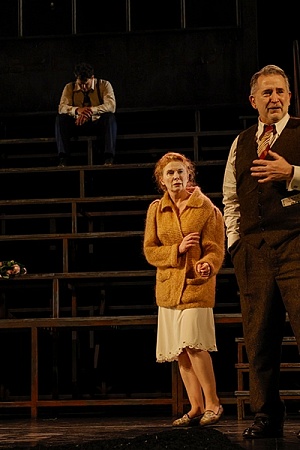Krapp's Last Tape
‘Be again. (Pause) All that old misery. (Pause) Once wasn’t enough for you.’ Reminiscing is rarely a happy experience for Samuel Beckett’s characters, least of all for that most autobiographical of his creations, Krapp. In reply to a friend who had sent him a letter mentioning their good old days in pre-war Paris, Beckett brusquely wrote that there were neither good old days nor good new days. There were no good days at all. As his biographer Deirdre Bair puts it: ‘to yearn for anything in life, past or future, was unrealistic and a waste of time’.
In 1957 Beckett met the actor Patrick Magee, who was performing in Beckett’s radio play All That Fall. Attracted by Magee’s distinctive voice, Beckett decided to write a radio play for him, a play about time, memory, and the mutable personality. But with Waiting for Godot and Endgame already causing waves, Beckett’s attention was firmly fixed on the theatre, and Krapp’s Last Tape became a work for the stage, perhaps to be performed in tandem with Endgame.
Continue reading for only $10 per month. Subscribe and gain full access to Australian Book Review. Already a subscriber? Sign in. If you need assistance, feel free to contact us.















Leave a comment
If you are an ABR subscriber, you will need to sign in to post a comment.
If you have forgotten your sign in details, or if you receive an error message when trying to submit your comment, please email your comment (and the name of the article to which it relates) to ABR Comments. We will review your comment and, subject to approval, we will post it under your name.
Please note that all comments must be approved by ABR and comply with our Terms & Conditions.